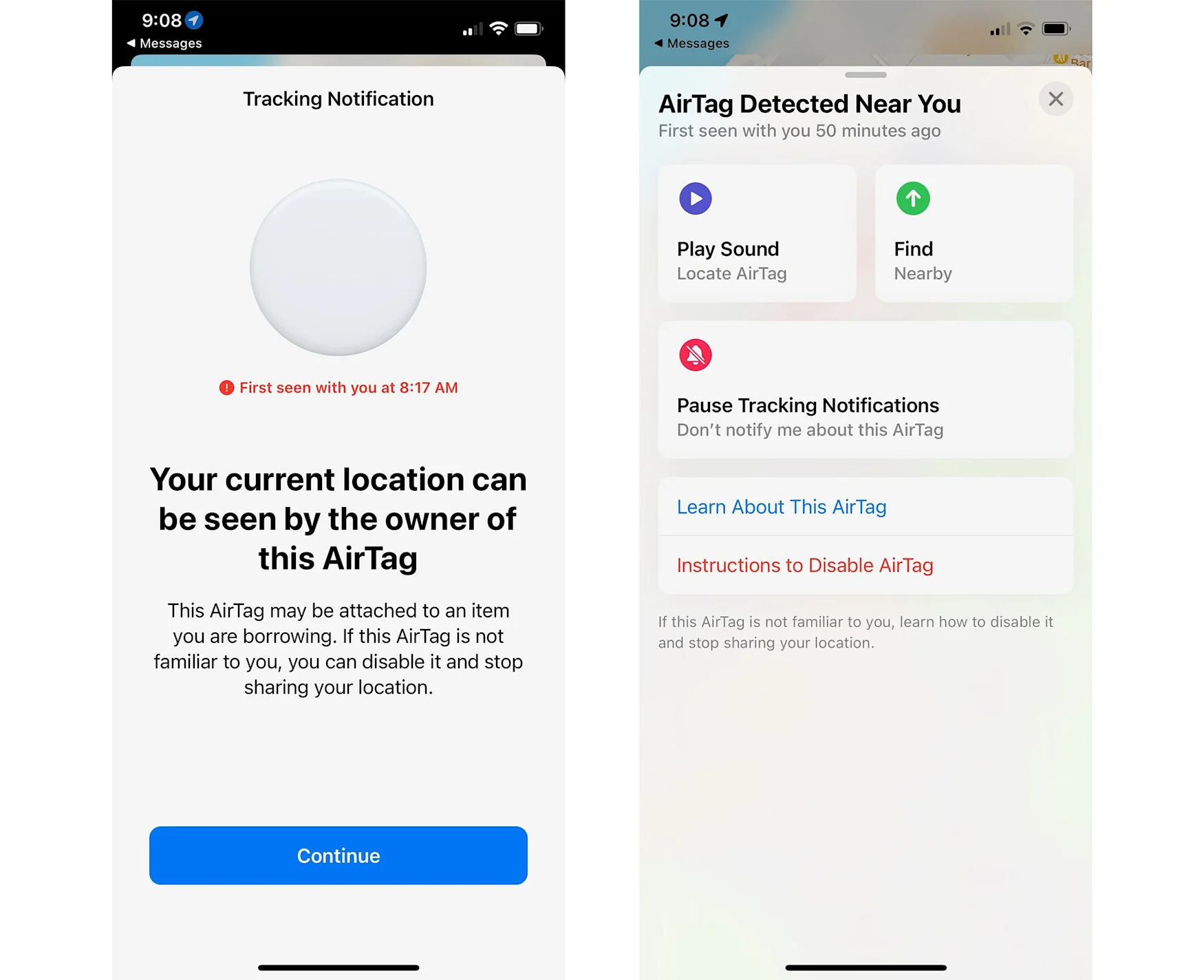As far as I know, no one is using an Apple AirTag to stalk me. But if that were to change, I’m not even sure I’d notice Apple’s attempts to warn me. The “AirTag Found Moving With You” notification near-constantly sits on my homescreen, and I’ve gotten used to quickly swiping it away.
But I’m getting ahead of myself – let me tell you about my dog, Rosie. She’s a sweet tempered, mild mannered rescue. Still, there was one catch when we adopted her: She’s a flight risk.
We’ve seen this firsthand when the sound of fireworks or a strong wind causes her to enter a full-blown panic. Rosie shuts down, shakes and, when it’s really bad, tries to run away. We’re working on it, but, in the meantime, we’ve turned to Apple AirTags as an extra reassurance.
The $29 quarter-sized AirTag attached to her collar keeps track of her location so that we can quickly find her if she ever got away. It’s mostly for peace of mind — we’ve only had to use it once — but it’s also quickly become an annoying part of my daily routine.
The problem is that the AirTag is registered to my partner’s device. That means that Apple doesn’t recognize my iPhone in connection with the AirTag, seeing the unknown tracker as a threat to my safety. It sends a notification that there’s an AirTag following me, which won’t go away until I acknowledge its presence in the Find My app, and there’s no way to tell it “hey, that’s just Rosie!” to disable the recurring notification. Plus, it’ll ping and make sounds to alert me of its presence, causing our already skittish dog confusion.

Katie Malone
These safety features exist for a good reason. They can notify a survivor that they’re being followed, and put them in control to bring it as proof of stalking to law enforcement, if that’s something they feel safe doing, Audace Garnett, technology safety project manager at the National Network to End Domestic Violence, told Engadget. In cases like that, AirTag’s persistence may be a welcome way to manage one’s safety. Competitors like Bluetooth tracker Tile have taken note, implementing a $1 million penalty on people using the product to stalk someone.
“For us, who are not being stalked or harassed, it may be an annoyance to us,” Garnett said. “But for someone that’s in a domestic violence situation, who is under power and control, this may be a life-saving tool for them.”
There are a few viable solutions, but none quite worked for me. The notification provides an option to disable the AirTag, which would be helpful to stop an unwanted third-party from knowing your location. That feature renders the AirTag useless, though, so it would no longer be able to track my dog if she did get out.
There is a way to pause tracking notifications for that specific AirTag, but it only lasts for 24 hours. Disabling Find My notifications didn’t work, so I tried disabling unwanted tracking notifications. That setting disables all unwanted tracking notifications, not just for this specific AirTag. So, if someone were to slip one in my bag, I wouldn’t get those notifications either. (Either way, the AirTag would still ping and make other noises as a back up safety feature for folks without smartphones.)
My partner and I could always open a Family Sharing iCloud, or a joint account that connects our devices. If we did that, I would unlock an option to cancel notifications for Rosie’s AirTag. We currently have separate accounts, though, and aren’t interested in fully merging our clouds. I could also buy any other tracking device to replace it with, like the slew of options available specifically for pets, if I wanted to spend the additional cash to avoid this feature.
Or, I could deal with the minor inconvenience knowing that somewhere out there, this feature is helping someone else stay safe. I think I’ll go with that.
If you are experiencing domestic violence and similar abuse, you can contact the National Domestic Violence Hotline by phone at 1-800-799-SAFE (7233) or by texting “START” to 88788.
All products recommended by Engadget are selected by our editorial team, independent of our parent company. Some of our stories include affiliate links. If you buy something through one of these links, we may earn an affiliate commission. All prices are correct at the time of publishing.
Credit: Source link


Comments are closed.